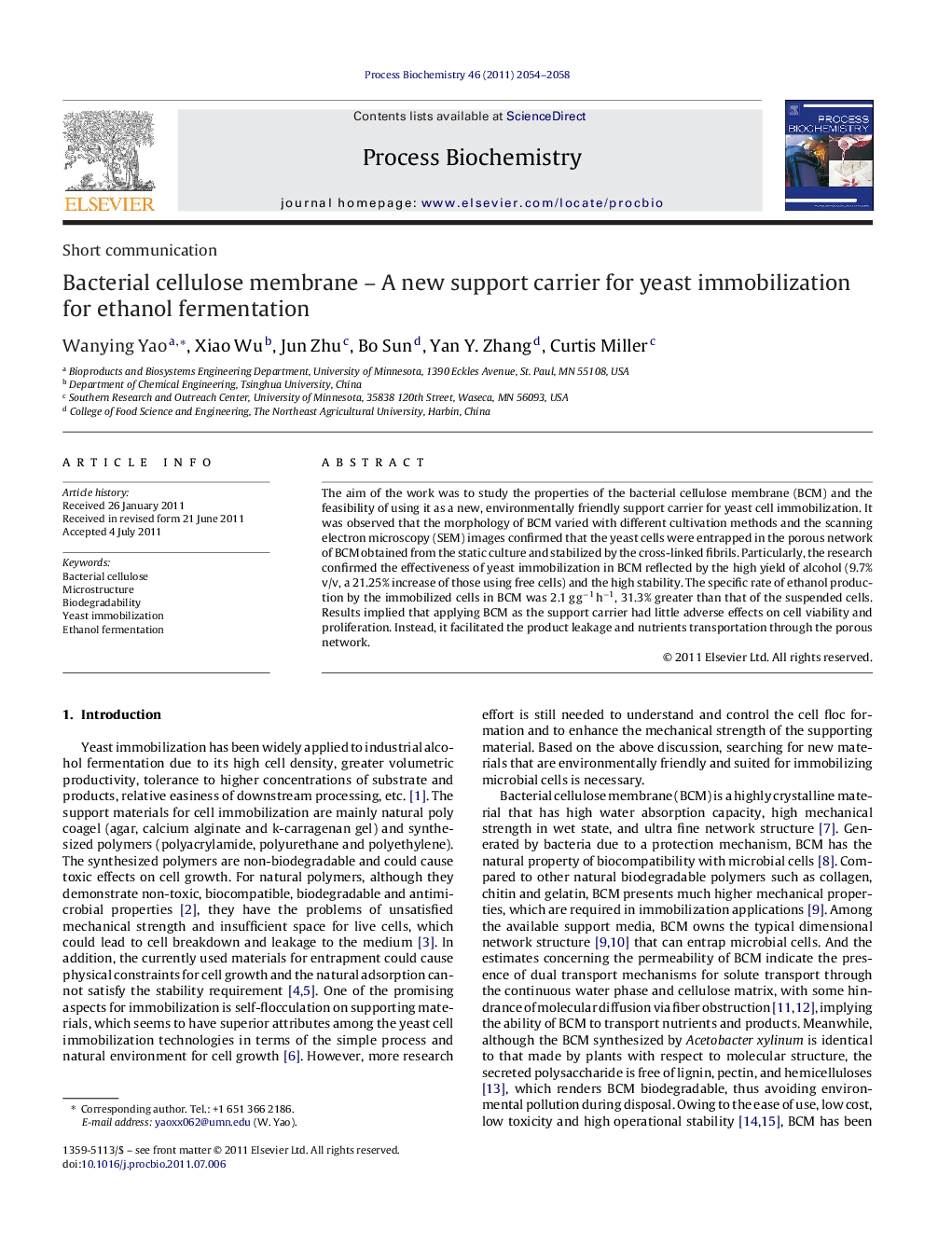| Article ID | Journal | Published Year | Pages | File Type |
|---|---|---|---|---|
| 10235874 | Process Biochemistry | 2011 | 5 Pages |
Abstract
The aim of the work was to study the properties of the bacterial cellulose membrane (BCM) and the feasibility of using it as a new, environmentally friendly support carrier for yeast cell immobilization. It was observed that the morphology of BCM varied with different cultivation methods and the scanning electron microscopy (SEM) images confirmed that the yeast cells were entrapped in the porous network of BCM obtained from the static culture and stabilized by the cross-linked fibrils. Particularly, the research confirmed the effectiveness of yeast immobilization in BCM reflected by the high yield of alcohol (9.7% v/v, a 21.25% increase of those using free cells) and the high stability. The specific rate of ethanol production by the immobilized cells in BCM was 2.1 g gâ1 hâ1, 31.3% greater than that of the suspended cells. Results implied that applying BCM as the support carrier had little adverse effects on cell viability and proliferation. Instead, it facilitated the product leakage and nutrients transportation through the porous network.
Related Topics
Physical Sciences and Engineering
Chemical Engineering
Bioengineering
Authors
Wanying Yao, Xiao Wu, Jun Zhu, Bo Sun, Yan Y. Zhang, Curtis Miller,
